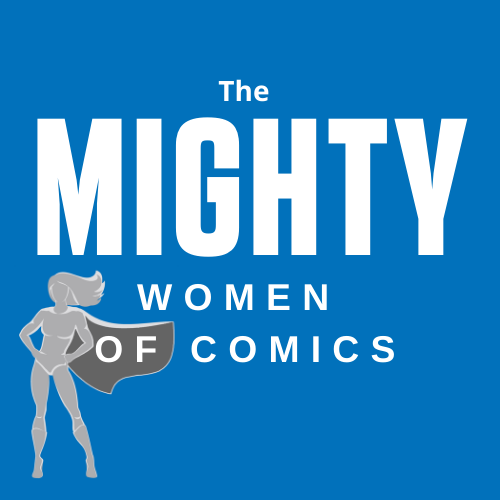Trina Robbins
Who can say they’ve had a song written about them by Joni Mitchell, knew Jim Morrison, appeared in the documentary She’s Beautiful When She’s Angry, written more than a dozen books, and was the very first woman to illustrate Wonder Woman (as well as a pantheon of other characters)?
Here – I’ll let Wonder Woman tell you…

Artwork by Ramona Fradon
Yes, that’s Trina Robbins appearing as herself in Wonder Woman Annual #2 (1989).
When Robbins first entered the comics industry, it was long considered an old-boys club. Other than a brief period in the early forties when women were hired to fill spots vacated by men drafted to fight in WWII, comics written or illustrated by women were unheard of. Especially comics entirely created by women. It was a foreboding atmosphere for female creators. This all changed in 1970 when Robbins and a group of women in Berkeley created It Ain’t Me Babe Comix, the first all-woman comic book.
Long before this, Robbins grew up fascinated by comics about women heroines. She devoured titles such as Mary Marvel, Wonder Woman, and Sheena, Queen of the Jungle. In high school, she briefly set comics aside when she discovered science fiction. It was the love of fantastic stories and creating her own that carried Robbins through her teens in New York all the way to California as a young woman ready to change the world.
And change the world she did. After It Aint Me Babe, Robbins joined the anthology comic series Wimmen’s Commix. For its inaugural issue in 1972, Robbin’s contributed “Sandy Comes Out,” the first strip to feature a lesbian comic book character.
In the 1980s, Robbins had a chance to draw her childhood hero Wonder Woman in 1986’s The Legend of Wonder Woman, becoming the first woman to do so since the character’s creation over four decades earlier.
A decade later, she wrote Wonder Woman: The Once and Future Story graphic novel in collaboration with artist Colleen Doran.
Since then, Robbins has continued to be prolific, and not only in the realm of comics. Her first non-fiction book, Woman and the Comics, was published in 1983. Since then, she has written over a dozen titles, many of which focus on the history of women comic creators. Most recently, her autobiography Last Girl Standing, was published in 2017. In 2013 she became the fourth woman inducted into the Will Eisner Comic Book Hall of Fame.
It’s safe to say Robbins not only opened doors for women comic creators – she also kicked them down.









